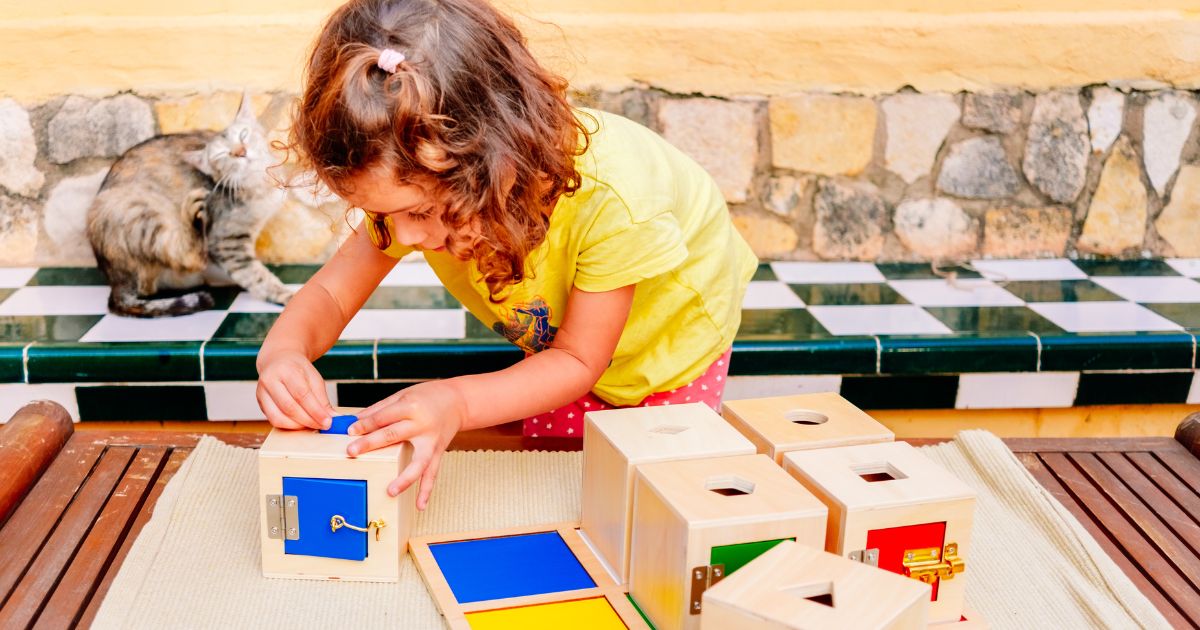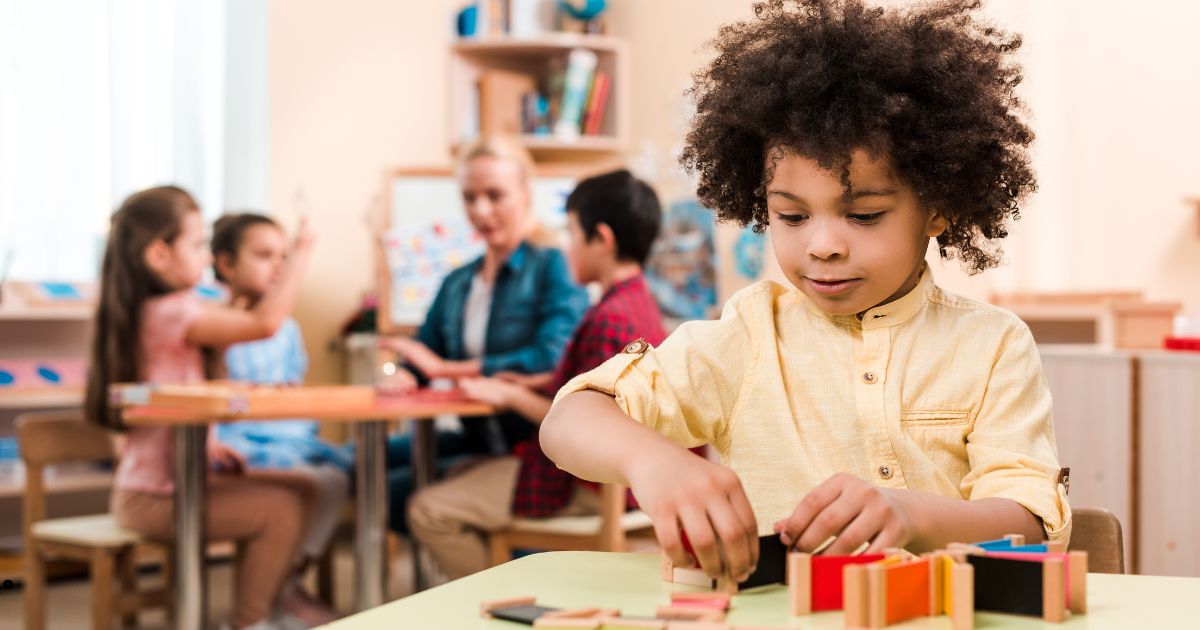In a world teeming with educational philosophies, the Montessori method stands out with its unique emphasis on fostering a child’s natural love for learning. This century-old approach recognizes that children possess an innate curiosity and drive to explore the world around them. If you’re a parent seeking to understand alternative approaches to education, the Montessori method is worth investigating. Let’s take a closer look at its core principles, classroom practices, and the potential benefits it offers for young minds.
Who Started It All? Dr. Maria Montessori
The Montessori method is the brainchild of Dr. Maria Montessori, an Italian physician, and educator who lived in the late 19th and early 20th centuries. Her pioneering work was driven by a deep understanding of child development and the conviction that children are naturally curious, capable learners when provided the right environment and support.
The Essence of the Montessori Approach
- Child-Centered Learning: At the core of Montessori education is placing the child at the center of their learning journey. Children are seen as active participants rather than passive recipients of knowledge. They are given the freedom to choose activities that align with their interests and to progress at their own pace.
- Hands-On Exploration: Montessori classrooms are filled with specially designed materials that promote hands-on exploration and discovery. These materials cover areas like mathematics, language, science, practical life skills, and sensorial awareness, allowing children to learn through direct experience.
- Prepared Environment: The classroom itself is considered a vital tool for learning. Montessori classrooms are meticulously organized, aesthetically pleasing, and filled with child-sized materials that are readily accessible. This ‘prepared environment’ fosters independence, order, and a sense of belonging.
- Mixed-Age Groups: Montessori classrooms intentionally bring together children of different ages (usually a three-year span). This encourages peer-to-peer learning, with older children acting as role models for younger ones, and younger children benefiting from the guidance and support of older peers.
- Uninterrupted Work Periods: The Montessori approach values extended, uninterrupted stretches of time for children to fully immerse themselves in their chosen activities. This allows for deep concentration, problem-solving, and the joy of mastery.
- The Role of the Teacher: Montessori teachers are trained as facilitators and guides. They observe children carefully, prepare the classroom environment, introduce materials, and offer support when needed. They trust in the child’s inner drive to learn and step back to allow for independence and discovery.
The Advantages of the Montessori Method
- Encourages a Love of Learning: By allowing children to guide their own learning, Montessori ignites an intrinsic love of learning that can last a lifetime.
- Develops Independence and Self-Discipline: Children learn to work independently, take care of their environment, and manage their time effectively, fostering important life skills.
- Nurtures Confidence and Creativity: The freedom to explore and make mistakes develops self-confidence while open-ended activities encourage creativity and problem-solving.
- Fosters a Global Mindset: Mixed-age groups and an emphasis on global awareness cultivate respect for diversity and a sense of interconnectedness.
- Strong Academic Foundation: Research suggests that Montessori students often meet or exceed traditional academic benchmarks, doing so with a sense of joy and self-motivation.

Is a Montessori Education Right for Your Child?
Like any educational approach, Montessori isn’t a one-size-fits-all solution. Here are some things to consider:
- Structure vs. Freedom: Montessori classrooms emphasize child-directed learning and freedom of movement. If your child thrives in a highly structured environment with clear directives, the initial transition to a Montessori setting might require some adjustment.
- Social Development: The mixed-age grouping in Montessori classrooms fosters valuable peer-to-peer learning. However, some children, particularly younger ones, might feel overwhelmed or unsure of how to interact initially. Observing a Montessori classroom beforehand can help you gauge if your child would benefit from this dynamic.
- Learning Style: Montessori caters well to a variety of learning styles, with its emphasis on hands-on exploration and concrete materials. However, if your child learns best through direct instruction and teacher-led activities, a more traditional approach might be a better fit.
- Family Involvement: The Montessori philosophy emphasizes continuity between home and school. Parents are encouraged to understand the method and create a Montessori-inspired environment at home. Consider your willingness to actively participate in your child’s Montessori journey.
How to Find a Montessori School
If you’re intrigued by Montessori, be sure to visit potential schools in person. Observe the classroom atmosphere, interact with teachers, and ask lots of questions. Look for authentic Montessori programs accredited by organizations like the Association Montessori Internationale (AMI) or the American Montessori Society (AMS).
If you’re interested in learning more about how the Montessori approach could benefit your child, consider visiting New Horizons Montessori at New Horizons Montessori. Their dedicated team can provide insights and help you determine if a Montessori education is the right fit for your family.
The Montessori Legacy
The Montessori method has stood the test of time and its influence on early childhood education is undeniable. Whether you ultimately choose Montessori or another path for your child, understanding its principles can offer valuable insights into how children learn and thrive.


